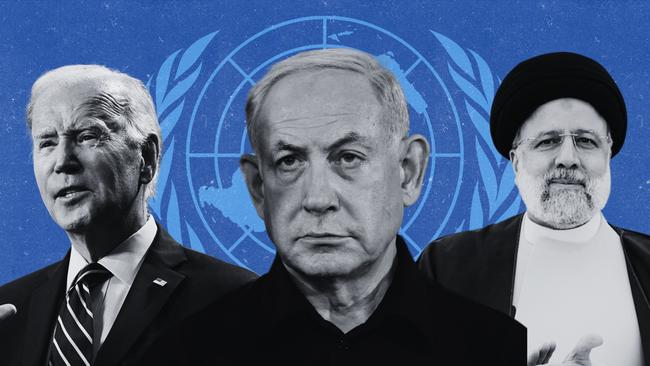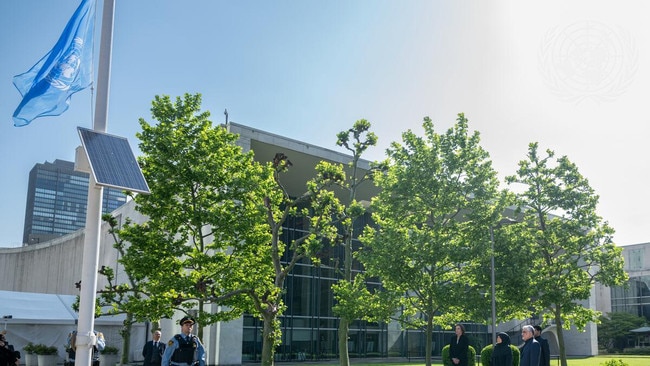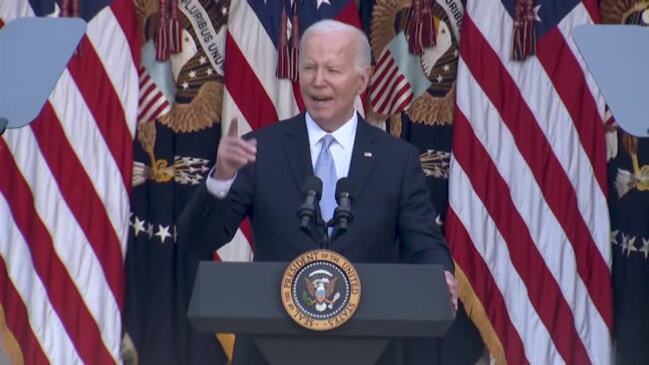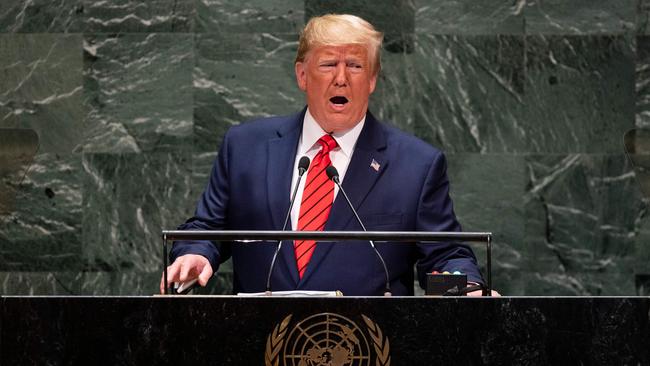American antipathy towards UN is hardening


At the United Nations headquarters in New York on Tuesday, flags flew at half-mast and security council members stood and observed a minute’s silence for Ebrahim Raisi, the president of Iran, who died last weekend. His contribution to domestic and global peace has been the blood of thousands of Iranian dissidents and victims of Iranian-sponsored terror around the world. RIP.

The day before, at the International Criminal Court in The Hague, a body separate from but endorsed by the UN, created by more than 100 nations for the administration of so-called international criminal justice, the court’s chief prosecutor announced he was recommending arrest warrants for Binyamin Netanyahu, the Israeli prime minister, and Yoav Gallant, the country’s defence minister, for alleged war crimes. In the interests of balance, perhaps, he called for the arrest of the Hamas leader Yahya Sinwar and other figures in the Islamist organisation.
Consider the juxtaposition of the “international community’s” priorities. For the murderous head of a theocratic authoritarian state: solemn remembrance and solidarity. For the democratically elected leader of a nation fighting a war against a terrorist organisation that massacred its civilians and still holds many of them (and those of other countries) hostage: a request for an arrest warrant. Even for Joe Biden, whose daily vacillations on Israel’s war in Gaza have become a menace to the security of America’s principal ally in the Middle East, the ICC’s action was too much, and he issued a terse and sulfurous statement condemning it (though his administration did, thoughtfully, express its condolences to Iran on the death of its president).
The stark contrast between the official multilateral institutions’ treatment of civilised nations and their enemies has again brought into sharp focus the purpose and value of global co-operation through these bodies, especially for the United States.
In the US, the virtue and utility of multilateralism, particularly through the UN and similar bodies, have long been a source of tension. But recent events have been pushing the country further away from the multilateral system. American foreign policymakers have had mixed feelings about the UN for some time. Its elevation of the interests of hostile states, its consistent anti-Israel stance, the sheer lunacy of the priorities of some of its bodies and councils, and the soaring ambitions of its bureaucracy to be less a global forum for co-operation and more a world government, have made it a constant pain in Washington’s backside.

Against that, its status, particularly through the security council, as the most serious, credible and easily accessed forum for the conduct of high-level diplomacy has been highly prized. Now, however, the cost-benefit equation of this trade-off is getting decidedly more disadvantageous for the US.
This week’s ICC action will reinforce American popular and institutional hostility to the multilateral system (the US, wisely expecting something exactly like this to happen, never signed up for membership of the court). But it comes on top of other developments that further undermine US trust. The accusation that 19 United Nations Relief and Works Agency employees took part in Hamas’s October 7 attacks led the US to briefly suspend funding for the agency and Congress passed legislation in March to extend that suspension.
The performance of the UN’s World Health Organisation in its handling of the Covid pandemic, particularly its craven approach to the Chinese Communist Party, further exposed the malignant influence of these institutions.
If Donald Trump is elected, you can be fairly certain that US estrangement from the international system will grow dramatically. Trump’s NATO scepticism is well known and, while an exit from the military alliance is unlikely, we can expect many more strains that are likely to weaken it. The contempt the UN and its agencies showed for Trump in his first term has been reciprocated. Trump likes to recall the time he spoke at the general assembly and warned the German government it had become dangerously dependent on Russian oil and gas, for which he was literally laughed at by the German delegation. The laughter stopped in February 2022.

But even Democrats, who have typically taken a more favourable view of multilateralism and the institutions that facilitate it, are becoming sceptical of some of the international ties associated with it. The left has already rejected many of the tenets of global economic integration that it championed under Bill Clinton and that were seen as part of a commitment to advancing through international co-operation.
President Biden this month imposed new tariffs on imports of steel, electric vehicles and other products from China, stepping up a trade war that is a feature of the wider strategic rivalry between the two countries. The administration is also mulling co-operation with Congress to impose sanctions on the ICC for its actions against the Israeli leaders.
For a diminishing number of policymakers on the left the UN and other bodies continue to have their utility. But the mood is changing rapidly. The moral and political neutrality the UN was obliged to practise in the Cold War has given way to something much worse – an apparent tilt in its stance away from the US and its democratic allies and towards the rogues’ gallery of autocrats, revisionists and antisemites.
As all the signs point to a steadily escalating Cold War 2.0, this time with China, America needs friends and allies. It doesn’t need to find itself and its allies condemned, undermined and tethered by international organisations it helps to sustain.
The Times



In the space of two days the world was given a revealing glimpse of the moral compass that guides the multilateral institutions of the so-called global community, the various bodies in which governments and peoples invest their trust for the cause of creating a safer and more just planet.